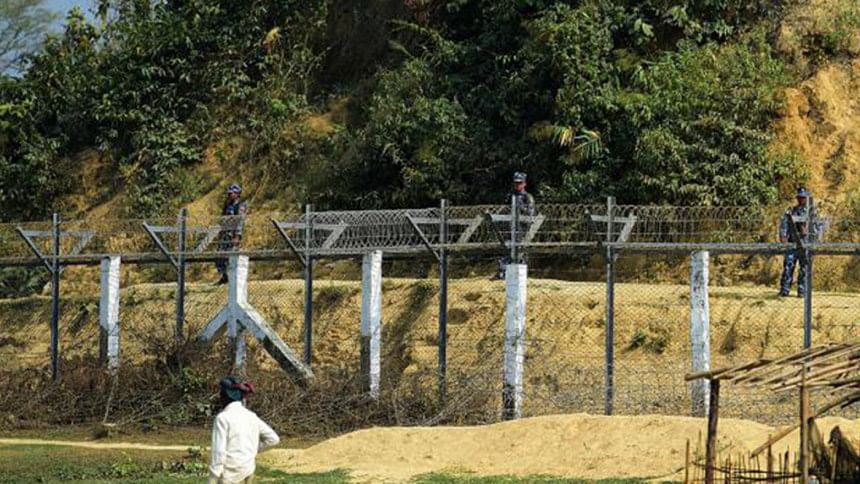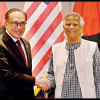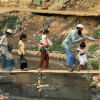7 Myanmar soldiers 'get 10 years over Rohingya killings'

Seven Myanmar soldiers have been sentenced to jail with hard labour for their part in the extrajudicial killings of 10 Rohingya Muslim men last year, according to a Facebook post by the army chief late on Tuesday.
The bloody incident in Inn Din village on 2 September is the only atrocity to which the military has admitted during its violent crackdown in northern Rakhine state, which has forced some 700,000 Rohingya to flee over the border into Bangladesh since August last year.
Two Reuters journalists, Myanmar nationals Wa Lone, 31, and Kyaw Soe Oo, 27, were investigating the massacre when they were arrested in December on the outskirts of Yangon for possessing classified documents that could land them up to 14 years in jail if convicted.
A month after their detention, the military issued a statement in a rare admission of wrongdoing that some of its security forces had been involved in the killing and pledging to take action against those responsible.
However, the army has repeatedly claimed the Rohingya men were "terrorists", but has not presented any evidence to back up the allegation.
"Four officers have been purged (from the army) and given a 10 year prison sentence with hard labour. A further three soldiers were purged and given a 10 year prison sentence with hard labour in a criminal prison," read the post from Senior General Min Aung Hlaing.
The tribunal took place behind closed doors, ignoring international calls for an independent inquiry.
The arrest of the Reuters journalists has provoked global outrage with calls for the pair's release echoing around the world as they wait to hear whether the court will throw out their case on Wednesday.
Their report, based on testimony from Buddhist villagers, security officers and relatives of the slain men, described how Myanmar troops and Buddhist villagers executed the 10 men before dumping their bodies into a mass grave.
It included photographs of the victims, hands bound and kneeling on the floor prior to the killing -- and of their bodies in a pit afterwards.
Myanmar's civilian leader Aung San Suu Kyi has welcomed the army admission as a "positive step".
'Hallmarks of genocide'
The country's military has a grim track record of rights abuses over 50 years of rule.
Many had hoped Suu Kyi's new democratic government that swept to power in 2016 would see the army step back from its notorious "scorched earth" approach to rebellion and conflict, but the crackdown on the Rohingya in Rakhine state banished those hopes.
Amnesty International called the summary killings at Inn Din "the tip of the iceberg" in terms of atrocities carried out since August and has repeatedly urged a wider, impartial probe.
The UN has accused Myanmar's army of ethnic cleansing, saying there are even possible "hallmarks of genocide" with refugees bringing with them consistent testimony of murder, rape and arson.
Doctors Without Borders (MSF) estimate that at least 6,700 Rohingya were killed in the first month of the military crackdown alone.
Myanmar denies the allegations, justifying its campaign in Rakhine as a legitimate response to Rohingya militants and blaming the international media and aid agencies for spreading false information fuelled by a pro-Rohingya bias.
After decades of discrimination and propaganda against them, the Rohingya are widely viewed as "Bengalis" - or illegal immigrants from Bangladesh - in the Buddhist-majority country.
Northern Rakhine state has largely been in lockdown since the campaign began eight months ago with access to media, observers and most aid groups tightly controlled.

 For all latest news, follow The Daily Star's Google News channel.
For all latest news, follow The Daily Star's Google News channel. 








Comments